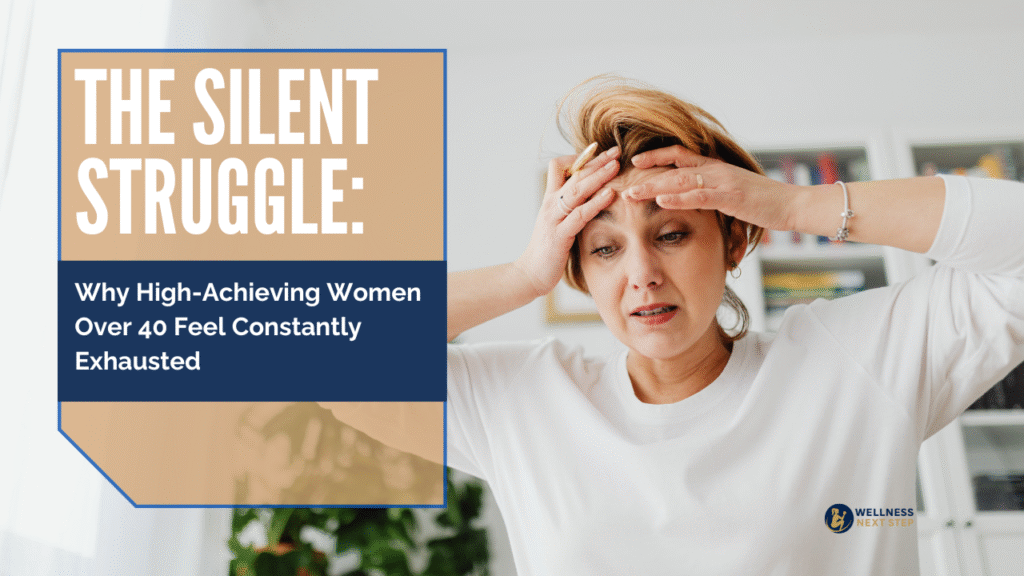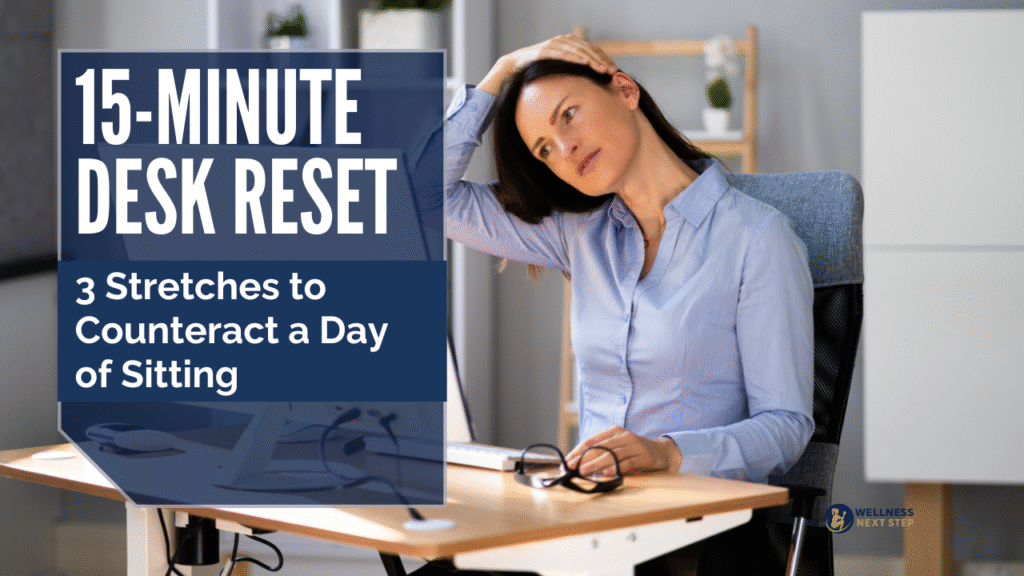So there’s this woman. You might even know her.
Let’s call her Kimberly.
She’s the Vice President of Marketing at Bank of America. A woman who leads with strategy and grace. Who can speak to a room of 300 without notes? Who mentors the junior staff, drives million-dollar campaigns, and still remembers to send her mother flowers on her birthday.
She’s sharp. She’s respected. And she’s running on fumes.
You wouldn’t know it by looking at her. Her outfits are tailored. Her calendar is stacked. Her emails are prompt, even at midnight.
But behind closed doors?
She’s exhausted.
And not the “I need a nap” kind of tired. The deep, bone-weary, soul-wobbly kind. The kind of tired that lingers even after a weekend away. The kind that doesn’t go away with green juice or a gratitude journal.
At 47, Kimberly was blindsided by something no one prepared her for: Perimenopause.
Cue the brain fog. The night sweats. The 3:00 a.m. anxiety wake-ups for no discernible reason. She started forgetting small things—names, passwords, entire sentences mid-conversation. Her once-boundless energy felt like it had been siphoned away.
But did she talk about it?
Of course not.
Because Kimberly is “the strong one.” The one who always figures it out. The one who keeps everything running.
Until her body whispered: You’re done.
And that whisper? It became a roar.
You’re Not Broken—You’re in the Eye of a Perfect Storm
If you’ve ever felt like Kimberly—successful on the outside but secretly wondering, Why am I this exhausted?—you’re not crazy, weak, or failing.
You’re likely in the middle of a very real, very under-discussed convergence of pressures that affect high-achieving women over 40.
Let’s break it down.
Hormonal Whiplash
You know how in your 20s, PMS was annoying? In your 40s, it can feel like your body is holding you hostage. Estrogen and progesterone swing wildly in perimenopause, and it’s not just about hot flashes.
It’s sleep disruption. Mood crashes. Memory lapses. Emotional fragility where there used to be steel.
These aren’t personal flaws. They’re biological events.
Burnout in a Power Suit
Burnout isn’t just for the overworked interns. It hits hardest at the top.
As a high achiever, you’re likely juggling more responsibility than ever—with fewer hours of quality sleep and more demands pulling on your attention. And because you’re competent, people keep asking for more.
Burnout isn’t about not working hard. It’s about not having enough recovery.
The Perfectionist Trap
Let’s be honest: you don’t just want to succeed. You want to nail it. You want to be the best at work, a phenomenal partner, a present parent, the one who remembers birthdays and drinks enough water.
This perfectionism, combined with impostor syndrome, creates an exhausting internal cycle:
Perform → Question yourself → Work harder → Collapse → Repeat.
The Sandwich Squeeze
Your teenagers need emotional support. Your parents are starting to need physical support. And your inbox? It never sleeps.
You’re not imagining it—there truly is more on your plate now than ever.
And if you’re thinking, Okay… now what?—you’re already one step ahead.
The Fix Isn’t Another Productivity Hack—It’s a Paradigm Shift
When Kimberly finally reached out for help, she didn’t need another planner or supplement. She needed a whole new way of relating to her energy, her body, and her boundaries.
That’s where Holistic Wellness Coaching came in.
And before you roll your eyes or picture someone burning sage in yoga pants—hang with me. This isn’t woo. It’s smart. Strategic. Sustainable.
What Is Holistic Wellness Coaching?
It’s not about “fixing” you. You’re not broken.
It’s about finally understanding what’s been draining you—and building a toolkit to get your energy and clarity back.
We’re talking about real, evidence-based support around:
- Hormonal health (yes, your body is changing)
- Burnout recovery (not just managing stress, but healing it)
- Nutrition and sleep (because coffee is not a long-term strategy)
- Mindset and self-talk (goodbye, inner critic)
- Boundary setting (you don’t have to earn rest)
It’s Not Just About Wellness—It’s About Ownership
A good coach doesn’t tell you what to do. They walk with you while you figure out what you need. They help you cut through the noise and build habits that work in your actual life—not some Instagram fantasy.
And unlike well-meaning doctors who tell you to “get more sleep,” a holistic wellness coach actually helps you do it—step by step.
What Kimberly Learned (That You Can, Too)
After working with a coach, Kimberly stopped seeing her fatigue as failure—and started seeing it as data.
She made sleep non-negotiable. She started asking for help at work (and guess what? Her team stepped up). She began tracking her hormonal symptoms and brought actual information to her doctor, who adjusted her care plan.
Most importantly? She stopped trying to be superhuman.
And started being well.
Here’s the Part Where You Get to Choose
You can keep pushing. Pretending. Managing.
Or… you can pause. Breathe. And ask yourself:
What would change if I stopped surviving and started thriving?
You don’t need a crisis to justify asking for help. You just need to be tired of being tired.
Because the truth is, the energy you’re craving?
It’s not gone.
It’s just buried under years of coping, producing, and pretending.
And it’s time to dig it out—with support, not shame.
Next Step?
If Kimberly’s story felt familiar, and you’re ready for more than advice—you’re ready for change—Holistic Wellness Coaching might be your next power move.
Because success doesn’t have to come at the cost of your health.
You don’t have to do it all.
But you do deserve to feel like yourself again.
And that’s not a luxury.
It’s leadership.



